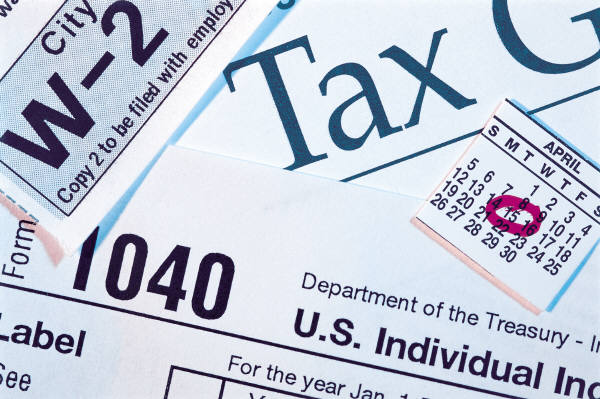 When a family member or other loved one passes away, there can be a lot of feelings and side issues that hit a family all at once. The event, in short, is overwhelming. And when time passes, giving the survivors a period to mourn and collect themselves, their thoughts turn inevitably to shoring up the estate. Questions concerning how to pay for last expenses, whether probate is necessary, and the distribution of assets are generally the first to arise.
When a family member or other loved one passes away, there can be a lot of feelings and side issues that hit a family all at once. The event, in short, is overwhelming. And when time passes, giving the survivors a period to mourn and collect themselves, their thoughts turn inevitably to shoring up the estate. Questions concerning how to pay for last expenses, whether probate is necessary, and the distribution of assets are generally the first to arise.
Will the Estate Owe an “Estate Tax”?
The estate tax is based on the total assets owned by a person at his or her death. The assets include not only those that pass through probate, but also those that pass by operation of law. This includes assets in a revocable trust, and financial accounts that have a beneficiary designation. Generally speaking, an estate in Massachusetts will only be subject to this kind of tax if the total assets exceed $1,000,000. The federal estate tax is much higher at approximately $5.25 million, as of the beginning of 2013.
There are ways during life to avoid estate tax liability, but once an individual passes away these options basically disappear and that tax will be due. Still, while there are more families today than ever who should plan for this tax, there are many more whose estates do not rise to this level.
What About the Decedent’s Income Taxes?
 Although many elderly individuals live their last years with relatively low income, it is still a good idea for a personal representative or other survivor to make sure that the last income tax return is filed. Even if the return contains mostly zeroes, this act will set the statute of limitations on IRS inquiries, investigations or audits.
Although many elderly individuals live their last years with relatively low income, it is still a good idea for a personal representative or other survivor to make sure that the last income tax return is filed. Even if the return contains mostly zeroes, this act will set the statute of limitations on IRS inquiries, investigations or audits.
This income, naturally, is limited only to the period of time that the decedent was alive. Social Security, pensions, dividends and other wages earned will be declared on the form by the responsible party. Income from sources that accrues after the individual’s death must be declared by the personal representative or other responsible party. This is known as a “fiduciary return.”
How Do I Know if a Fiduciary Tax Return is Necessary?
Income generated by an estate can often be nothing more than interest earned from a checking or savings account. In these instances, with interest rates as low as they are, it is safe to say that the income threshold has not been met for tax liability. And of course, the IRS likely has little interest in utilizing its resources to recover information about the estate’s earnings. Still, that estate has a separate EIN number for this purpose, so whether or not to file this return is ultimately on the shoulders of that fiduciary.
When an estate has significant assets, or perhaps assets held in a brokerage account or trust, the fiduciary will certainly need to pay close attention to the earnings made during the period of his or her tenure. These are the instances where the IRS will most certainly be looking for annual earnings information.
What About Capital Gains?
 Capital gains will be due once the gain is realized, e.g. sold. The gain is calculated by subtracting the basis (i.e. purchase price) from the sale price. Capital gains will therefore only be due on the decedent’s income tax return if he or she sold that asset during the year. Capital gains will only be due on a fiduciary return if the fiduciary sells that asset during his or her tenure.
Capital gains will be due once the gain is realized, e.g. sold. The gain is calculated by subtracting the basis (i.e. purchase price) from the sale price. Capital gains will therefore only be due on the decedent’s income tax return if he or she sold that asset during the year. Capital gains will only be due on a fiduciary return if the fiduciary sells that asset during his or her tenure.
In all other instances where the asset is not sold, but transferred to another (by a gift or by operation of law, e.g. when someone passes away) there are no realized gains. Instead, the basis is transferred from the transferor to the transferee. During life, this basis is the same as the purchase price. If the asset is transferred upon or after death, however, its basis is “stepped up” to the market value on the date of death. The differences in tax treatment between these two methods creates reasons for and against both lifetime gifting or testamentary transfers for any given individual.
Treatment of Assets Having Deferred Income Tax
Many times one of the more significant assets in an estate will be an IRA, or 401K that was funded with pre-tax income. The dual purpose of these accounts, of course, is to reduce taxable income while an individual is earning and to provide a later stream of income when he or she is not. These assets can become a little more complicated, however, if they are not spent during an individual’s life
If significant tax-deferred assets remain after someone passes away, there are still some options that the estate may take. If the entire amount is liquidated, of course, that sum will be counted as income attributable to the beneficiaries taxable at his or her marginal rate. But the account can also in many instances be rolled over to separate beneficiary accounts, to be paid out in distributions to the survivors (within a certain accelerated period of years). To determine whether these situations apply one should speak to an attorney, CPA or the financial broker in charge of the accounts.
Among the many tax filings that may be necessary after someone dies in Massachusetts, there will likely be only one or two of these applicable in any situation. Having a knowledgeable MA probate attorney available is well worth the time to get things right and put a mind at ease. Feel free to call our office at any time for questions you may have.



